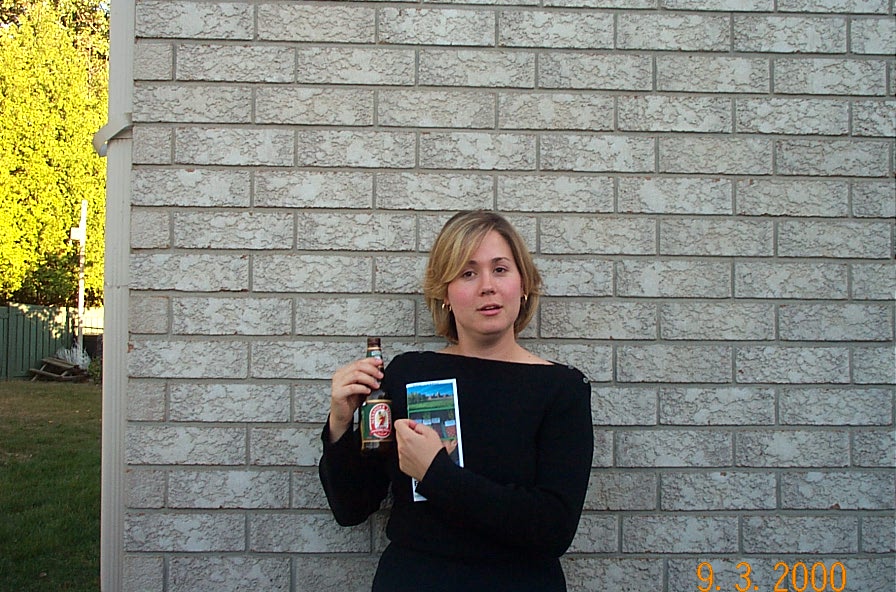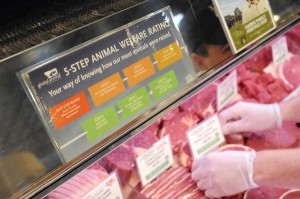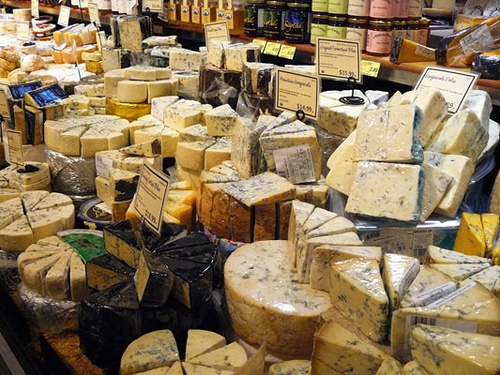I bought a turkey yesterday for Thursday’s Thanksgiving food orgy – 15 pounds at $0.68 per pound at Dillions supermarket in Manhattan (Kansas).
We usually don’t go anywhere because the town is more serene with the students gone, and we host a dinner for various international stragglers with nowhere else to go.
 At least I didn’t have to go to Whole Foods. Terrible food safety and so insufferable.
At least I didn’t have to go to Whole Foods. Terrible food safety and so insufferable.
For the past couple of weeks, Whole Foods has been pushing their turkeys like some form of food porn crack, and repeating the following statements as mantra:
“No antibiotics — ever
No supplemental growth hormones*
No animal byproducts in feed
“*Federal regulations prohibit the use of hormones when raising poultry”
Whole Foods lets birds suffer if they are sick, and follows the law by not using hormones. Should sick animals be deprived antibiotics? Wouldn’t that go against animal welfare standards? I don’t see how this is the basis for an advertizing campaign. Federal regulators may want to have a look, seeing as they cracked down on Tyson’s BS claims that they didn’t use antibiotics in poultry production that no one else used.
Whole Foods does have a bunch of homespun tales about turkeys raised by farmers the way our grandparents did it. Apparently society has learned nothing about food production over the past 60 years.
Whole Foods also has a thing against modern technology like freezing, and says it only sells fresh birds – big cross-contamination problem
I bought fresh birds a couple of times in the 1990s, and concluded they were overpriced and sucked. Same with fresh pasta. Some things are meant to be preserved using technology.
But this marketing is aimed directly at the consumers’ pocketbook.
“It just makes sense that the more care and time that goes into raising the turkeys, the more they will cost.”
Good for you if people will pay.
The Chicago Tribune reports that Whole Foods is also piloting a new humane meat-rating system in the South and scheduled for national expansion early next year. If the six-step, color-coded labeling system works as planned, it could allow .jpg) American consumers at many supermarket chains unprecedented levels of specificity when it comes to choosing meat to match their principles.
American consumers at many supermarket chains unprecedented levels of specificity when it comes to choosing meat to match their principles.
I’d really like to be able to choose meat and other foods by levels of microbial contamination. American retailers will market anything to make a buck, but why not reward those producers, processors and retailers who consistently deliver food that doesn’t make people barf.
“Developed by the Global Animal Partnership, a nonprofit group made up of farmers, scientists, retailers, sustainability experts and animal welfare advocates, the rating system aims to address growing consumer concerns over the way animals are raised for food. It could also, not coincidentally, boost sales for certified farmers and participating stores, likely to include another unidentified major national retailer and restaurant group in the coming year, according to the nonprofit.
“Its six-step approach establishes baseline standards for all meat sold in the store, while offering producers an opportunity to achieve higher ratings as their animal welfare standards improve based on the program’s benchmarks.
“So, for example, the highest rating (5+, colored green) would go to a chicken that, among other things, had been bred, hatched and raised on a single farm, .jpg) lived year-round on pasture covered with at least 75 percent vegetation and had legs that were healthy enough to support it by the time it reached market weight.
lived year-round on pasture covered with at least 75 percent vegetation and had legs that were healthy enough to support it by the time it reached market weight.
“And the lowest rating (1, colored yellow) would reflect adherence to several dozen baseline provisions about feed, antibiotics and treatment, but also a provision that the animal must not have been caged or crowded.”
The Whole Foods folks could have learned something from those studying restaurant inspection disclosure and the use of colors or grading schemes. I also expect absolutely no verification that the system communicates to shoppers what was intended.
"We get an enormous amount of questions from customers who want to know everything about the meat and animals, really detailed questions," said Anne Malleau, global animal production and welfare coordinator for Whole Foods Market. But the program is also aimed at customers who don’t want the gory details so much as assurances that their "food has been humanely produced," Malleau said.
Although the company has no set formula for pricing GAP levels, it did share some examples from an Atlanta-area store that started rolling out the program in 2009. Grain-fed rib-eye steak rated a Step 1 costs $14.99 lb., while local grass-fed  rib-eye, rated Step 4, costs $15.99 lb. And Canadian bone-in pork chops rated Step 1 cost $6.99 lb., while local bone-in pork chops rated Step 4 cost $7.99 lb.
rib-eye, rated Step 4, costs $15.99 lb. And Canadian bone-in pork chops rated Step 1 cost $6.99 lb., while local bone-in pork chops rated Step 4 cost $7.99 lb.
Who pays that? And relying on auditors? You have heard of Peanut Corporation of America and DeCoster eggs and dozens of other outbreaks. Anne, who used to go to the University of Guelph and even hang out with the folks in my lab (above, right, exactly as shown) I want microbiologically safe food. That’s something I’d pay for.
 scored cutting boards — critical violations that contributed to each store receiving fines of $3,000, state records obtained by The Journal News show.
scored cutting boards — critical violations that contributed to each store receiving fines of $3,000, state records obtained by The Journal News show.
 The recalled cheese was cut and packaged in clear plastic wrap with a Whole Foods Market scale label, and a code beginning with 293351. The recalled cheese was sold between May 20 and July 3, 2012.
The recalled cheese was cut and packaged in clear plastic wrap with a Whole Foods Market scale label, and a code beginning with 293351. The recalled cheese was sold between May 20 and July 3, 2012..jpg) drains. The entire area was closed for complete cleaning as soon as the problem was discovered, and was cleaned and sanitized again the next day by a professional cleaning service.
drains. The entire area was closed for complete cleaning as soon as the problem was discovered, and was cleaned and sanitized again the next day by a professional cleaning service. .jpg) broken. After local management decided to just lock the bathroom doors and cover the mess with air spray, she reported the incident to corporate management.
broken. After local management decided to just lock the bathroom doors and cover the mess with air spray, she reported the incident to corporate management..jpeg) thickest part of one piece. The meat should still be juicy, but the juices should be clear, never reddish
thickest part of one piece. The meat should still be juicy, but the juices should be clear, never reddish
(1).jpg) The artisan cheese maker temporarily shut down.
The artisan cheese maker temporarily shut down..jpg) them grind it.”
them grind it.” may have become soiled or contaminated. Specifically, the owner was observed throughout the day to altemately perform cheese making functions, such as stirring cheese curd with bare hands and wrapping cheese in grape leaves, with outside activities, such as milking/feeding livestock, without any hand washing being observed.
may have become soiled or contaminated. Specifically, the owner was observed throughout the day to altemately perform cheese making functions, such as stirring cheese curd with bare hands and wrapping cheese in grape leaves, with outside activities, such as milking/feeding livestock, without any hand washing being observed. .jpg) brushed pants with a bare hand and was later observed standing over a bucket of drained curd in the cheese room with the soiled pants coming in to contact with the edge of the bucket.
brushed pants with a bare hand and was later observed standing over a bucket of drained curd in the cheese room with the soiled pants coming in to contact with the edge of the bucket..jpg) American consumers at many supermarket chains unprecedented levels of specificity when it comes to choosing meat to match their principles.
American consumers at many supermarket chains unprecedented levels of specificity when it comes to choosing meat to match their principles..jpg) lived year-round on pasture covered with at least 75 percent vegetation and had legs that were healthy enough to support it by the time it reached market weight.
lived year-round on pasture covered with at least 75 percent vegetation and had legs that were healthy enough to support it by the time it reached market weight.